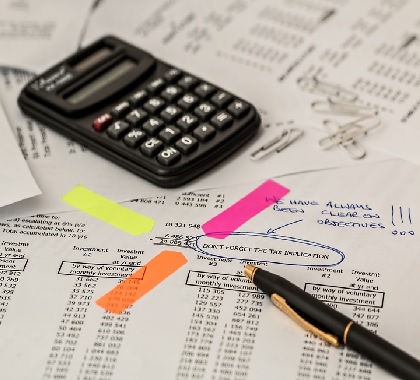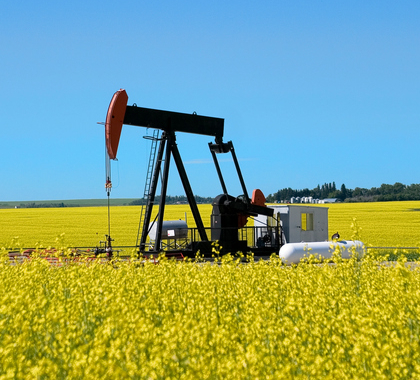In his new two-year budget, Washington State Gov. Jay Inslee proposed more than $4 billion in new taxes to help pay for K–12 teachers and other school workers. The tax-hike plan includes two new taxes, one on carbon dioxide and the other on capital gains. Both taxes would be highly disruptive to the economy and would have a strong negative impact on investment and the cost of doing business.
Inslee’s proposal would include a highly regressive, $2 billion, $25-per-ton carbon-dioxide emissions tax. The carbon-dioxide tax is inherently regressive and would disproportionally harm low-income families. The Congressional Budget Office (CBO) found a similar, $28-per-ton carbon-dioxide tax would result in energy costs being 250 percent higher for the poorest one-fifth of households than the richest one-fifth of households.
CBO reports the reason for the expected cost discrepancy is “a carbon tax would increase the prices of fossil fuels in direct proportion to their carbon content. Higher fuel prices, in turn, would raise production costs and ultimately drive up prices for goods and services throughout the economy. Low-income households spend a larger share of their income on goods and services whose prices would increase the most, such as electricity and transportation.”
This is why most proposed carbon-dioxide tax legislation comes with offsetting cuts to other taxes – known as “tax swaps” – or direct tax rebates to individuals and families. This was the case with the failed I 732 ballot initiative. In that case, even proponents of the carbon tax admitted that it would increase gas prices by 25 cents per gallon statewide.
Oren Cass, senior fellow at the Manhattan Institute, says the environmental benefits that might come from passage of a carbon-dioxide tax would be minimal. “The effectiveness of a carbon tax as a matter of environmental policy [depends] not only on how it would directly alter the trajectory of [local] emissions but also on its ability to affect global emissions by driving globally applicable technological innovation or by influencing the behavior of foreign governments,” wrote Cass. “On each of these dimensions, the carbon tax fails.”
Instead of adding a new tax, elected officials should set their taxes at low, competitive rates that are applied to a broad base. If state legislators truly want to cut carbon-dioxide emissions, they should develop Washington State’s already abundant hydroelectric resources. According to the U.S. Energy Information Administration, the Evergreen State already produces 30 percent of the nation’s net hydroelectricity generation, making it the biggest hydroelectric generator in the country.
Additionally, Inslee’s proposal would establish a 7.9 percent tax on capital gains earnings above $25,000 for individuals and $50,000 for joint filers. Proponents estimate it would raise about $821 million in fiscal year 2019. Capital gains taxes are taxes paid by individuals and corporations on their capital gains, or profits realized when investors sell a capital asset for a net gain. Currently, 43 states charge some type of a capital gains tax. These taxes hold down capital formation and reduce wages for workers. Relying on capital gains tax revenue is risky because it applies to a relatively small tax base and can fluctuate wildly based on market changes, making it an undependable revenue source.
Capital gains tax hikes remain popular because of the perception the tax applies only to wealthier taxpayers and doesn’t affect those with lower incomes, but capital gains taxes actually lower workers’ paychecks and result in job losses.
The carbon and capital gains tax increases will do little to improve the education system in Washington State. Instead of increasing funding for education, Washington State should embrace educational choice and allow education tax dollars to follow each child. Educational choice would give Washington families open and equal access to the high-quality schools that more closely fit their needs – all at a lower cost. The competition created in a choice-oriented system improves spending and education outcomes across the board, which should be the end goal of any education policy.
The following documents examine carbon and capital gains taxes in greater detail.
Ten Principles of Energy Policy
https://heartland.org/publications-resources/publications/ten-principles-of-energy-policy
In this Legislative Principles booklet, Heartland Institute President Joseph Bast identifies the ten most important energy issues facing the nation and outlines the energy policy actions that will lead to the highest, most efficient production at the lowest cost to consumers.
Dissecting the Carbon Tax
http://www.american.com/archive/2012/july/dissecting-the-carbon-tax
American Enterprise Institute Resident Scholar Kenneth Greene tells how he was first deceived by the supposed economic benefits of carbon taxes and how his views have evolved in light of the dubious track record of other eco-taxes being raided for general spending.
Five Myths of Cap-and-Trade
https://heartland.org/publications-resources/publications/five-myths-of-cap-and-trade
Articles supporting cap-and-trade programs rest on a number of fallacies. In this article by Todd Myers of the Washington Policy Center, Myers identifies and explores five persistent myths concerning cap-and-trade, including the belief that a cap on carbon dioxide emissions guarantees emissions reduction.
The Carbon Tax Shell Game
https://heartland.org/publications-resources/publications/the-carbon-tax-shell-game
Oren Cass of the Manhattan Institute says the carbon tax is a shell game. The range of designs, prices, rationales, and claimed benefits varies so widely that assessing the actual validity of most proposals is nearly impossible to accomplish. In this article for National Affairs, Cass says the effect of carbon dioxide taxes on emissions has proven to be insubstantial, a fact he says is ignored by the tax’s proponents when promoting its purported benefits. Cass also says carbon dioxide taxes’ negative fiscal effects are claimed to be offset by efficiency improvements and by promising the revenues will be spent to offset the costs, but he says the same revenues are often promised to different constituencies to accomplish completely different and largely incompatible goals.
Why Scientists Disagree About Global Warming
https://heartland.org/policy-documents/why-scientists-disagree-about-global-warming
In this book published by The Heartland Institute, authors Craig Idso, Robert M. Carter, and S. Fred Singer say the most important fact about climate science, which they say is often overlooked, is scientists disagree about the environmental impacts of the combustion of fossil fuels on the global climate. There is no survey or study showing “consensus” on the most important scientific issues, despite frequent claims by advocates to the contrary. Scientists disagree about the causes and consequences of climate for several reasons. The authors say the only “consensus” among climate scientists is human activities can have an effect on local climate and the sum of such local effects could hypothetically rise to the level of an observable global signal. The key questions to be answered, they say, are whether the human global signal is large enough to be measured, and if it is, does it represent or is likely to become a dangerous change outside the range of natural variability? On these questions, an energetic scientific debate is taking place on the pages of peer-reviewed science journals, say the authors.
State and Federal Individual Capital Gains Tax Rates: How High Could They Go?
https://heartland.org/publications-resources/publications/state-and-federal-individual-capital-gains-tax-rates-how-high-could-they-go
The American Council for Capital Formation’s Center for Policy Research highlights the effects of increased federal tax rates on long-term individual capital gains when the federal, state, and, in some cases, local taxes are combined. The study found a low capital gains tax rate is important in fostering economic growth.
The Effect of the Capital Gains Tax Rate on Economic Activity and Total Tax Revenue
https://heartland.org/publications-resources/publications/the-effect-of-the-capital-gains-tax-rate-on-economic-activity-and-total-tax-revenue
This study by the Institute for Research on the Economics of Taxation identifies how taxpayers and investors react to capital gains tax rates: “The tax treatment of capital gains and dividends greatly affects the quantity of capital created and employed. The quantity of capital affects the productivity, wages, and employment of labor. Output and incomes are lower at higher levels of taxation of capital. Raising the tax rate on capital by increasing the tax rate on dividends and capital gains from current levels would shrink national income across the board.”
The Dangers of Raising Taxes on Investment Income
http://www.manhattan-institute.org/html/ir_5.htm
Manhattan Institute Senior Fellow Diana Furchtgott-Roth contends higher rates on capital gains and dividend income will likely harm the economy by reducing the overall level of U.S. investment and driving investment overseas. Furchtgott-Roth concludes higher tax rates would reduce economic activity, and thus economic growth, by reducing available financing for private companies, innovators, and small firms just getting started.
Economic Effects of Increasing the Tax Rates on Capital Gains and Dividends
https://heartland.org/publications-resources/publications/economic-effects-of-increasing-the-tax-rates-on-capital-gains-and-dividends
The Heritage Foundation finds rolling back the 2003 tax cuts on capital gains and dividends would slow economic growth: “The slower economy causes employment to shrink by 270,000 jobs in 2011 and 413,000 in 2018. Similar job losses continue for the next seven years of our model’s forecast horizon of 2008 through 2018.”
The Economic Costs of Capital Gains Taxes
https://heartland.org/publications-resources/publications/the-economic-costs-of-capital-gains-taxes
This study from the Fraser Institute outlines the effects of capital gains taxes: “Unfortunately, the cost of capital gains taxes is not limited to the amount of tax collected. Capital gains taxes impose additional costs on the economy because they reduce returns on investment and, thereby, cause individuals and businesses to alter their behaviour.”
Nothing in this Research & Commentary is intended to influence the passage of legislation, and it does not necessarily represent the views of The Heartland Institute. For further information on this and other topics, visit the website of Environment & Climate News, The Heartland Institute’s website, and PolicyBot, Heartland’s free online research database.
The Heartland Institute can send an expert to your state to testify or brief your caucus; host an event in your state; or send you additional information on a topic. Please don’t hesitate to contact us if we can be of assistance! If you have any questions or comments, contact John Nothdurft, Heartland’s director of government relations, at [email protected] or 312/377-4000.





